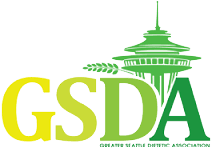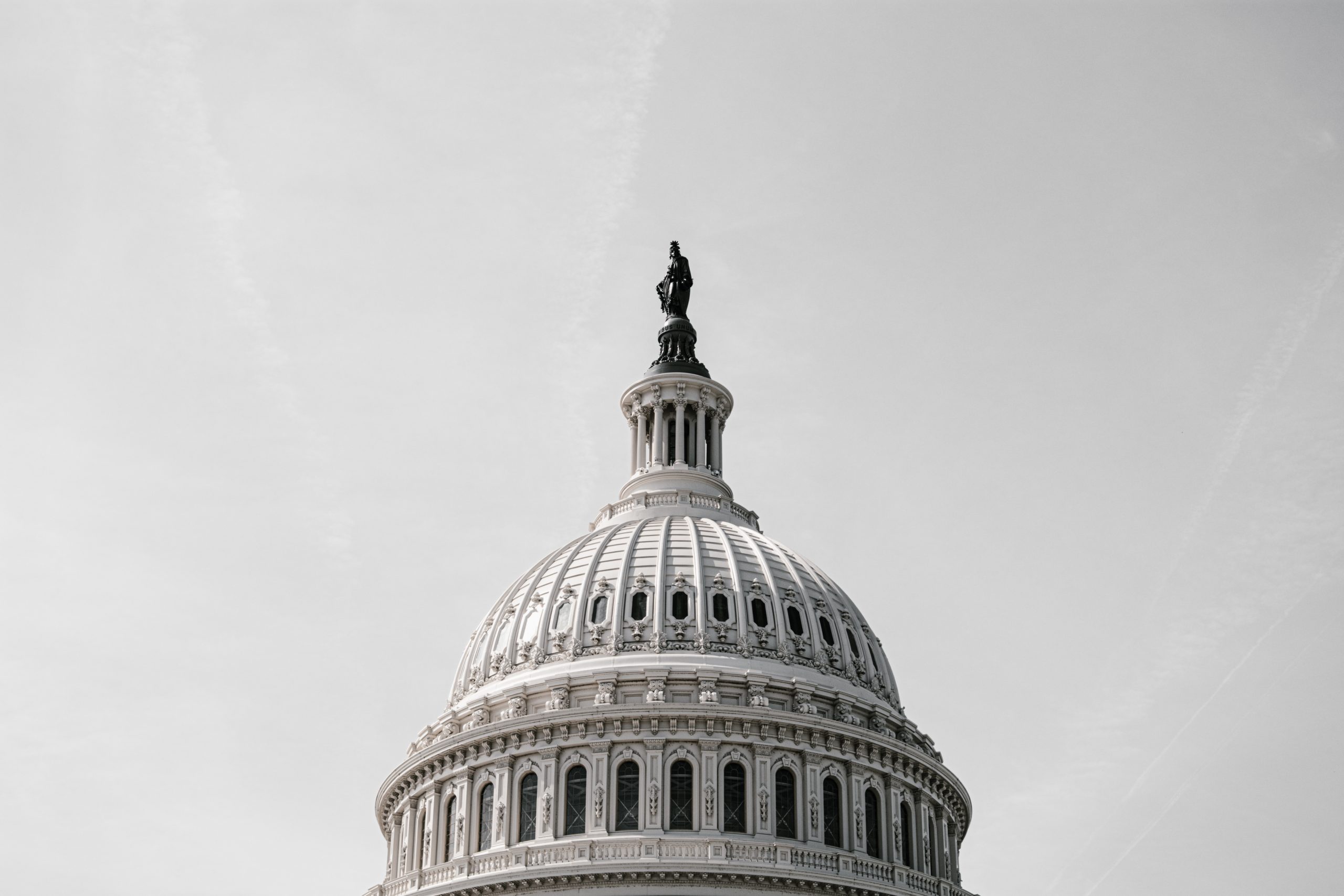The Dietitian’s Unique Role in Public Policy
By Sara Kushner
“For real and lasting improvements in the food system, we must do more than vote with forks. We must vote with votes, engage in politics, and advocate for food systems that distribute benefits not just to corporations, but also to people who need and deserve these benefits. This means creating a food environment in which the healthy and sustainable food choice becomes the easy choice – more readily available, affordable, and acceptable.” -Marion Nestle, Let’s Ask Marion
Registered dietitians can have significant and even life-saving impacts on the lives of their patients. Armed with a foundation of scientific knowledge, counseling skills, and a genuine desire to improve the wellbeing of others, RDs work tirelessly in many different areas of the field to better the lives of those around them by taking advantage of the healing properties of food.
But many people face barriers to seeking care from an RD. Socioeconomic status, race, age, disability, healthcare, and, in the time of COVID, poor home WiFi connections may all contribute to an individual’s inability to get the treatment they need from a dietitian. If they do manage to see an RD, they may face hardships when it comes to following nutrition recommendations. Transportation, high food costs, and living in low-income areas or food deserts are just a few potential things that can make it difficult or even impossible to maintain a health-promoting diet.
An Insider’s Perspective
Dietitians working in all areas of the field stand witness to the hardships faced by their clients. One example is the dietitian in private practice, whose rates are too high for certain members of the community to seek care but who can’t afford to lower them due to the cost of living. Dietitians working in hospitals may see cancer patients who are struggling to pay their medical bills and can not afford to buy the types of food that is safer for their compromised immune systems, or even to put dinner on the table. RDs working in foodservice at a public school are often faced with students whose only calories come from school breakfasts and lunches because their parents are struggling to make ends meet at home. Sports dietitians could encounter athletes who get disqualified from competitions because, as a result of the lack of regulation around supplement purity testing1, they unknowingly take a dietary supplement that contains a banned substance. Even dietitians working in areas such as corporate wellness may work with employees who have economic, racial, or healthcare-related barriers that do not allow them to prioritize their own health.
It is important for all dietitians to understand that, regardless of their area of practice or expertise, they have the power to make an even bigger positive impact on their clients’ lives. They have the ability to get involved in public policy, which can directly impact the resources that are available to their clients.
Unique Qualifications
Registered dietitians are uniquely qualified to participate in food policy due to their understanding of nutrition science and experience in the field. They have witnessed the positive, life-changing effects that nutrition interventions can have on an individual, and they can draw on those experiences to express support for or against policies that affect the food and healthcare systems. Dietitians not only have the ability, but also the responsibility, to use their knowledge for the benefit of the population.
The rigorous academic program, dietetic internship, and registration exam that are required of all aspiring RDs are the starting points that allow dietitians around the country to become the nation’s leading experts on nutrition. Registered dietitians work alongside doctors, nurses, school administrators, and farmers. Their expertise is needed in all of these areas where they may be the sole nutrition professional. People everywhere look to dietitians for guidance, and that extends beyond each individual RD’s field of practice. Local communities, state governments, and national lawmakers are constantly considering policy changes and improvements that revolve around nutrition and healthcare.
In the past month alone, Congress has considered or passed laws to expand insurance coverage for MNT, recognize Malnutrition Awareness Week, include crucial nutrition issues in the next stimulus package, support diversity in nutrition and dietetics programs, and increase funding for minority-serving institutions2. The USDA has implemented programs to protect pregnant individuals through WIC during COVID3 and to extend child nutrition waivers that allow access to free school meals through the end of the year4.
Making Your Voice Heard
While government agencies do employ dietitians who help affect positive change, the breadth of responsibility of these agencies is so wide that they aren’t always able to focus strictly on nutrition-related issues. Individual policy makers can’t possibly be experts on every issue, and they are less likely to make changes involving topics they lack the knowledge or skills for5.
That’s where RDs around the country come in. Dietitians can influence positive change on nutrition and healthcare issues by educating community members and policy makers, and by expressing their support for legislation. Politicians are more likely to take action on issues that have high levels of public support5, so it’s the responsibility of dietitians to make their voices heard when nutrition-related legislation is on the table. This is how big changes are made. These changes are necessary to support the wellbeing of all people in the United States.
Getting involved in food policy can be simple. The Academy of Nutrition and Dietetics’ Action Center is frequently updated with action items that make it easy for you to send an email to your local congresspeople, urging them to support specific pieces of nutrition-focused legislation. Completing action items is a fast and effective way to affect change. Recently, the USDA extended free summer meal programs for children through December 31, 2020, after more than 2,000 Academy members completed an action item urging the Department to extend the program.
If you are curious about additional ways to get involved, reach out to your state or local dietetic association to stay informed about what’s going on in your community. Joining the Academy’s Public Health and Community Nutrition DPG is another way to keep track of current policies and initiatives. You could also consider attending the Academy’s Nutrition and Dietetics Advocacy Summit, which provides education on current issues and training on how to effectively communicate with policy makers. Do you want to engage others in the conversation? Reach out to fellow RDs to share what you’ve learned about food policy and hear their thoughts, or widen the conversation even further by sharing your thoughts with a group or on social media.
Simply put, according to the Academy, “support for nutrition is not only good public policy, it is good politics.” What matters most is if you get involved, not how. Every action you take is a step toward achieving positive food policy changes.
About the Author
Sara is a second-year MSN-DPD student at Bastyr University. She is passionate about helping others achieve improved nutrition, and she strives to promote positive changes in her local community. In her free time she enjoys reading, running, and traveling.
References
- “Frequently Asked Questions (FAQ).” NIH Office of Dietary Supplements, U.S. Department of Health and Human Services, ods.od.nih.gov/HealthInformation/ODS_Frequently_Asked_Questions.aspx.
- Academy of Nutrition and Dietetics. https://www.eatrightpro.org/advocacy/take-action/action-center.
USDA Extends WIC COVID-19 Flexibilities for Duration of the COVID-19 Public Health Emergency. USDA. https://www.usda.gov/media/press-releases/2020/09/21/usda-extends-wic-covid-19-flexibilities-duration-covid-19-public. - USDA Extends Free Meals for Kids Through December 31, 2020. USDA. https://www.usda.gov/media/press-releases/2020/08/31/usda-extends-free-meals-kids-through-december-31-2020.
- Cullerton, Katherine, et al. “Playing the Policy Game: a Review of the Barriers to and Enablers of Nutrition Policy Change.” Public Health Nutrition, vol. 19, no. 14, 2016, pp. 2643–2653., doi:10.1017/s1368980016000677.


